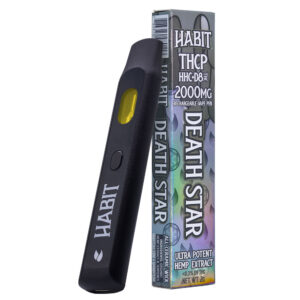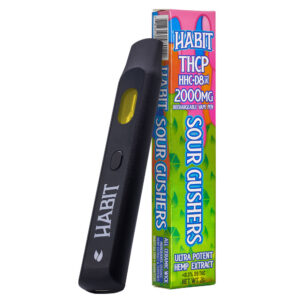THC-P + HHC + D8 RECHARGEABLE VAPE PENS
THC-P: The Ultimate Guide to a Potent Cannabinoid
Welcome to the ultimate guide to THC-P, a potent cannabinoid that has been making waves in the cannabis community. In this comprehensive article, we will delve deep into the world of THC-P, exploring its origins, effects, benefits, and potential risks. Whether you’re a seasoned cannabis enthusiast or simply curious about the latest trends in the industry, this guide will provide you with all the information you need to know about THC-P. So, let’s embark on this enlightening journey together!
What is THC-P?
THC-P, also known as tetrahydrocannabiphorol, is a rare and highly potent cannabinoid found in cannabis plants. It belongs to the family of tetrahydrocannabinols (THCs), which are the primary psychoactive compounds in cannabis. thc-p is known for its ability to interact with the endocannabinoid system in the human body, producing a range of effects that vary from person to person.
The Discovery of THC-P: A New Era in Cannabis Research
In recent years, scientists and researchers have been actively exploring the chemical composition of cannabis, uncovering new and intriguing cannabinoids. One of the most significant discoveries has been THC-P, which was first isolated and identified in 2019 by a team of Italian researchers led by Dr. Giuseppe Cannazza. The discovery of thc-p has opened up new avenues for cannabis research and has sparked considerable interest in its potential applications.
Unraveling the Effects of THC-P: What to Expect
When it comes to the effects of THC-P, it’s important to note that research is still in its early stages, and there is much to learn about this intriguing cannabinoid. However, based on the limited studies conducted so far, THC-P is believed to be significantly more potent than delta-9-tetrahydrocannabinol (THC), the most well-known and abundant cannabinoid in cannabis.
THC-P is thought to interact with the endocannabinoid system in a similar manner to THC, binding to the CB1 receptors primarily found in the brain and central nervous system. This interaction may lead to a range of effects, including heightened psychoactivity, increased appetite, altered perception of time, and potential therapeutic benefits.
Conclusion: Exploring the Potential of THC-P
THC-P is undoubtedly a fascinating cannabinoid that has the potential to revolutionize the world of cannabis research and therapeutics. While much is still unknown about THC-P, early findings suggest that it possesses unique properties that set it apart from other cannabinoids.
As research on THC-P continues to unfold, it’s important to approach it with an open mind and prioritize responsible usage. Whether you’re a curious consumer or a researcher eager to explore the therapeutic potential of cannabinoids, THC-P promises to be an exciting area of study.
In conclusion, THC-P holds great promise for the future of cannabis research and the development of new therapeutic options. With its high potency and potential benefits, THC-P opens up a world of possibilities for those seeking alternative treatments and exploring the vast potential of the cannabis plant.
FAQs about THC-P
1. Is THC-P legal?
As of the time of writing, the legal status of THC-P varies from country to country and even within different states or regions. It’s essential to stay updated with the laws and regulations in your specific jurisdiction to ensure compliance.
2. How is THC-P different from THC?
THC-P is structurally different from THC, and it is believed to be significantly more potent. While THC is the primary psychoactive compound found in cannabis, THC-P is a rare cannabinoid that has gained attention for its potential therapeutic applications.
3. Can THC-P cause intoxication?
Due to its high potency, even small amounts of THC-P can produce potent psychoactive effects. It’s important to use THC-P responsibly and adhere to dosage recommendations.
4. Are there any side effects associated with THC-P?
Since research on THC-P is limited, the full range of potential side effects is not yet known. However, it’s important to note that high potency cannabinoids may have stronger and more pronounced effects, which can include anxiety, paranoia, dry mouth, and increased heart rate.
5. How can THC-P be consumed?
THC-P can be consumed in various ways, similar to other cannabinoids. Common methods of consumption include smoking, vaporizing, or using it in edible or tincture form. It’s crucial to follow safe consumption practices and start with low doses when trying THC-P for the first time.
6. Is THC-P addictive?
As with any psychoactive substance, there is a potential for addiction or dependence with THC-P. However, more research is needed to fully understand the addictive properties of THC-P and its potential for abuse.
FDA DISCLOSURE: The statements made within this website have not been evaluated by the Food and Drug Administration. These statements and the products of this company are not intended to diagnose, treat, cure or prevent any disease. The statements made in this website are for educational purposes only and are not meant to replace the advice of your physician or health care provider. Individual results may vary.


